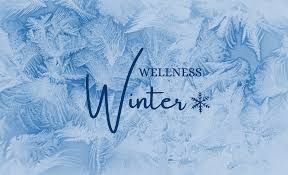Seniors vs. Crime

Did you know there is an organization called Seniors vs. Crime? Neither did I, but it was organized in 1989 by the Florida Legislature. It was formed to report on crime and the elderly. This task force, back in 1989 mind you, found that seniors were being targeted for scams, subjected to high-pressure sales tactics, and were being deceived by false advertising.
The Attorney General’s office created the program Seniors vs. Crime to help adults avoid crime, scams, hoaxes, and to help recover from being a victim. Now, 34 years later, the scams have become worse and there are so many more than what was. This task force can help you once you have been a victim, but I do not see where they have been able to accomplish helping avoid scams. Although, I do not know how many people know about them, as this is the first time I am hearing about Seniors vs. Crime.
The primary goal of this program is to reduce victimization of senior citizens who are often targeted for specific crimes based on their age.
How does this program work?
If you feel you have been a victim of a scam, gather all your documentation (receipts, work orders, contract, etc.), and bring them to the Seniors vs. Crime office so they can review your case. (Address and phone number at end of blog). Most cases are solved in a brief time, but others may take a longer amount of time, depending on the circumstances. Also, not all cases may be resolved to your satisfaction, but everything possible will be done to make that happen.
What can you do to prevent being a victim?
- Obtain at least three (3) written estimates on any work you are going to have done.
- Check with your local Better Business Bureau or government agency before having the work done to ensure the contractor is licensed and dependable.
- Have a written contract for ALL work to be performed.
- Make sure your contractor is licensed and insured!
- NEVER give out your bank account or social security numbers, especially over the phone.
Scam Red Flags
- Think before opening links.
- NEVER open non-English internet links!
- Do NOT hit unsubscribe!
- Always use secure https:// sites.
- Always know who you are giving personal data to and NEVER send personal data through an unsecured link!
- Always verify call back telephone number inquiries.
- Use strong passwords and NEVER you easy to decipher passwords such as name, date of birth, children’s date of birth, etc.
Here are some of the top scams out there today:
- Defective roofs.
- Landscaping issues.
- Unapproved construction.
- Unlicensed massage treatments.
- Cruise scams.
- Extended warranties.
- DNA testing.
- Home warranties.
- Faulty flooring.
- Cable TV/satellite scams.
- Appliance scams.
Top complaints from seniors:
- Moving companies.
- Car dealerships
- Construction contractors.
- Job cancellation and/or refunds.
- Computer issues.
- Plumbing contractors.
- Concrete contractors.
- Dishonest travel agents.
- A/C repair technicians.
- Pool installation contractor.
- Paving contractor.
If you feel you have been victimized, please reach out Seniors vs. Crime at 407-537-9509 or by email at volusia@svcproject.org. They are located at Holy Cross Lutheran Church, 724 Big Tree Rd., South Daytona, FL 32119, and the website is https://www.seniorsvscrime.com.




